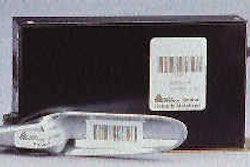Congress seems on the verge of passing legislation that will limit court awards in product liability cases. The trial lawyers lobby, with strong influence over Democrats, has long been able to block legislation in this area, the most recent example being a bill that reached the Senate floor in June of last year. In two separate votes, it fell three votes short of the 60 it needed to break a filibuster against it. But manufacturers and packagers are brimming with optimism this year because the Republican "Contract With America" has three product liability provisions that will undoubtedly pass the House and probably the Senate, although modifications are entirely possible. Its fate in the Oval Office is less certain. The Contract provisions are considerably more favorable than the Rockefeller/Gorton bill (Sens. Jay, D-WV, and Slade, R-WA) that fell to the Senate filibuster last year. What's called the Common Sense Legal Reforms Act was authored by a Republican Task Force chaired by Rep. Jim Ramstad (R-MN). The product liability provisions would set up a federal system to replace varying state laws in three key areas: * First, punitive damages would be limited to three times the claimant's actual harm, or $250ꯠ, whichever is greater. * Second, when damages are awarded for non-economic losses, companies would only have to pay that proportion resulting from their action. That means one company who deserved a little blame could not be forced to pay the whole judgment, which happens under "joint and several" liability, the legal doctrine currently in force. * Third, manufacturers would only be liable for harm caused by their negligence, which could result from the assembling of a product. How packagers benefit These would be important gains for packagers. The third provision, in particular, would have been a big help to Warner-Lambert Co., Morris Plains, NJ, when it was sued in 1991 in the aftermath of two deaths resulting from the ingestion of counterfeit, poisoned Sudafed capsules. Warner-Lambert had complied with all FDA rules on tamper-resistant packaging. But a criminal had opened the Sudafed package, removed a safe capsule, replaced it with a poisoned one, and reclosed the package. Jennifer Mann, a spokeswoman for Warner-Welcome (which now manufactures Sudafed), says the company settled both lawsuits for an amount she declines to disclose. About 15 years ago, the hospital products division of Abbott Laboratories was swamped by hundreds of lawsuits when an assembly line glitch resulted in the improper sealing of bottles of intravenous fluid. Bacteria got into the bottles through the improperly sealed cap. Abbott settled those suits. Regina Lemke Mundt, a spokeswoman for Abbott's hospital products division, did not return repeated phone calls requesting details on that case. Not only do product liability suits over packaging glitches result in lawsuits and settlements, they also spur federal regulation. On January 24, 1995, the Consumer Product Safety Commission put out a final rule requiring "child-resistant" packaging for mouthwash containing more than three grams of ethanol. This rulemaking stemmed in part from the 1992 death of a three-year-old girl who drank mouthwash with 18 percent ethanol. Many groups ignore these bills Despite the potentially severe economic losses that packagers can suffer from product liability suits, most industry associations have not focused on the Common Sense bill. Marjorie Valin at the Flexible Packaging Assn. says the legislation is not a major priority for her group. Jimmy Hendricks at the American Plastics Council says "ditto" for his group. Jack LaCovey of the Society of the Plastics Industry was not familiar with the bill when a reporter first called. After checking around, Lacovey called back to say that SPI would be doing some grass roots lobbying on behalf of the bill this year. Other manufacturer groups, like the National Assn. of Manufacturers, are taking an active role. Groups that want to influence the bill had better focus on it fast. The House Judiciary Committee, which has jurisdiction, has held hearings on the Common Sense bill (H.R. 10) since February. However, the product liability provisions are only one section of H.R. 10; others sections deal with securities lawsuits, who pays court fees, and other technical tort reform issues. Probably the most controversial issue in H.R. 10 is "Loser Pays," which would require the party that loses a case to pay attorney costs for the winning side. That is supposed to discourage frivolous lawsuits. But even Republicans such as Sen. Orrin Hatch (R-UT), chairman of the Senate Judiciary Committee, have said they oppose that provision. Bipartisan support of parts The House Judiciary Committee is likely to break up H.R. 10 into component bills, including a separate one on product liability, as it did with a crime bill that passed that committee in early February. If the three product liability provisions are cut free from H.R. 10, they would undoubtedly win some bi-partisan support, particularly from conservative Democrats. Rep. Gary Condit (D-CA) is already one of the four co-sponsors. The big question is whether more liberal Democrats such as Rep. Barney Frank of Massa-chusetts and Rep. John Conyers of Michigan would support the bill. Peter Kovar, a spokesman for Frank, said the Massachusetts Democrat supported the Rockefeller/Gorton bill. It had no punitive damages cap but instead required a plaintiff to prove that a defendant's conduct manifested a "conscious, flagrant indifference" to public safety. Asked whether Frank would support a cap on punitive damages, which has been anathema to Democrats, Kovar said he was unsure. The bill's sponsors have tried hard to assuage the concerns of Frank and others of like minds. Ramstad says, "Our bill does not eliminate punitive damages, as some would prefer, but merely imposes reasonable limits on grotesquely bloated punitive damages awards that no longer bear a rational relation to the defendant's culpability or society's larger interests." Damages not 'capped' Victor Schwartz, the counsel to the Product Liability Coordinating Committee, the main industry lobbying group, contends that the Ramstad bill's limit of a maximum 300% punitive damage award is not a cap. "A cap is a flat, cut-off figure," he says. This bill instead uses a "proportionate" limit. Paul Rheingold, an attorney for a plaintiff suing Copley Pharma- ceuticals, Boston, MA, over allegations that bacteria got into batches of Copley's generic drug, Albuterol, says that many states already have limits on punitive damages. So he would not be surprised if such a provision passed Congress. But he adds, "If they were talking about a cap on compensatory damages, that would make a lot of people scream. But no one is talking about that." Of course, given the very favorable chances for a product liability bill, there are those who would like to add in additional provisions beyond the three in the Common Sense bill. Tom O'Day, associate vice president of the Alliance of American Insurers, says there are any number of interested parties who would like to see an amendment outlawing multiple punitive damage awards by various state courts for the same product defect. Individual liability bills A separate product liability bill for the medical supplier industry which has already surfaced is evidence of the potential "add-ons" floating around. The Biomaterials Access Assurance Act would give protection to the manufacturers of mostly plastics whose materials are used in products such as heart valves and breast implants. On the other hand, product liability reform advocates realize that new amendments worsen any bill's chance of passage. O'Day believes that the House will pass the product liability bill within its first 100 days. But he adds that the Senate will have to do likewise before September 1995, or else the bill could be subject to fast-rising political pressures stemming from the 1996 presidential and congressional elections. The Senate Commerce Committee will be the focal point of activity on the other side of Capitol Hill. The Chairman is Sen. Larry Pressler (R-SD). Both Sens. Rockefeller and Gorton are on the committee. The Product Liability Coordinating Committee has brought on some heavyweight outside lobbyists to help swing Senate support behind the Ramstad bill. For example, the Committee hired Mike House, a partner of the law firm Hogan & Hartson, who started his career in Washington as the administrative assistant to Sen. Howell Heflin (D-AL), one of the most tenacious opponents of product liability reform. Still, President Clinton has indicated his opposition to virtually all of the tort reform measures in the Republican Contract. Whether he wants to risk his meager political capital on a potential veto, or has just been rattling his veto sabre may well be determined by the vote totals on these arcane issues in both houses.
























